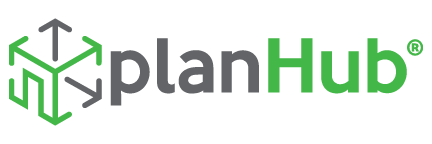The rise of AI technology like ChatGPT has revolutionized the digital marketing landscape, offering impressive natural language processing capabilities to generate human-like text. But with great power comes great responsibility, and some website owners may consider blocking ChatGPT from accessing their websites. In this comprehensive guide, we’ll explore the rationale behind such a decision, potential consequences, and the steps to restrict ChatGPT access.
Why Block ChatGPT?
There are several reasons why you might consider blocking ChatGPT from accessing your website:
- Data Privacy Concerns: AI models like ChatGPT can potentially scrape and analyze vast amounts of data from your website, which could raise privacy concerns for your users.
- Content Authenticity: AI-generated content may not always align with your brand’s voice or message, leading to a diluted or inconsistent user experience.
- Potential Misuse: ChatGPT can be misused by bad actors to create spammy content or manipulate search engine rankings.
- Quality Control: Relying on AI-generated content may lead to reduced quality or factual inaccuracies, undermining the credibility of your website.

Consequences of Blocking ChatGPT
Before deciding to block ChatGPT, it’s essential to understand the potential consequences:
- Loss of AI Benefits: Blocking ChatGPT means losing access to its potential benefits, such as enhanced content creation, keyword research, and data analysis.
- Reduced Competitive Edge: With many businesses embracing ChatGPT, blocking it may put you at a competitive disadvantage in the digital marketing landscape.
- Technical Challenges: Implementing ChatGPT blocking measures may require significant technical effort and resources.
Blocking ChatGPT: A Step-by-Step Guide
To block ChatGPT from accessing your website, follow these steps:
- Update Your Robots.txt File: Add the necessary directives to your robots.txt file to disallow ChatGPT user agents from crawling your website.
- Implement CAPTCHAs: Integrate CAPTCHA challenges on your website to prevent automated bots like ChatGPT from accessing your content.
- Monitor Website Traffic: Regularly review your website traffic logs to identify and block any suspicious activity from ChatGPT or other AI models.
- Stay Informed: Keep up-to-date with the latest developments in AI technology and adapt your blocking strategies accordingly.
Balancing AI Benefits and Risks
Instead of outright blocking ChatGPT, consider taking a more balanced approach that harnesses its benefits while mitigating potential risks:
- Hybrid Content Strategy: Combine AI-generated content with human creativity and oversight to maintain your brand voice and ensure quality control.
- Data Privacy Measures: Establish robust data privacy practices, such as anonymizing user data and adhering to GDPR guidelines, to protect user information.
- Ethical AI Implementation: Use ChatGPT responsibly and transparently, addressing any AI biases and prioritizing ethical practices.
- Continuous Monitoring: Regularly monitor and review your AI-generated content to maintain quality standards and make necessary adjustments.
Q: Why should I consider blocking ChatGPT from accessing my website?
A: Reasons include data privacy concerns, content authenticity, potential misuse, and quality control.
Q: What are the consequences of blocking ChatGPT from my website?

A: Consequences include losing access to AI benefits, reduced competitive edge, and potential technical challenges.
Q: How can I block ChatGPT from accessing my website?
A: Update your robots.txt file, implement CAPTCHAs, monitor website traffic, and stay informed about AI technology developments.
Q: Can I still benefit from ChatGPT without blocking it entirely?
A: Yes, by adopting a balanced approach that combines AI-generated content with human creativity, implementing robust data privacy measures, using ChatGPT ethically, and continuously monitoring its output.
Conclusion: To Block or Not to Block ChatGPT?
The decision to block ChatGPT from your website is a complex one that requires careful consideration of its potential benefits and risks. By adopting a balanced approach, you can harness the power of AI-generated content while mitigating potential concerns. So, before taking any drastic measures, evaluate your unique circumstances, and determine the best course of action that aligns with your brand’s values and objectives.
Are you still unsure about how to proceed with ChatGPT? Request a consultation to improve your digital marketing strategy, or subscribe to our newsletter for more digital updates. And, if you found this guide helpful, don’t forget to check out our other resources:
- GA4 vs. UA: Key Differences in 2023
- GDPR: Privacy Regulations as a Weapon in Digital Marketing
- Google Data Studio: Creating Custom Dashboards
- Mastering Technical SEO: A Modern Marketer’s Guide
Happy strategizing! 🚀
For more quality and free content, you can visit d-dat.com!







